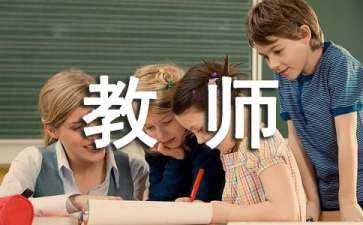八年级年级下学期 Lesson 101教学设计(通用6篇)
八年级年级下学期 Lesson 101教学设计 篇1
Lesson 102教学设计示例
Period: The Second Period
Properties: Tape-recorder, Overhead projector
Teaching objectives: Students should grasp the story and new words and useful expressions.
Teaching aims:
1. Knowledge aims
(1) Learn the new words and expressions
set off, on the first trip, over, enjoy oneself, iceberg, here and there, on watch, look out, sink, there is a hole in, lifeboat, make room for, thankful, join
(2) Continue to learn the past continuous tense.
2. Ability aims
(1) Students can find the past continuous tense in the passage.
(2) Students can retell the story in their own words.
Teaching procedures:
a) Organizing the class
Greetings and a duty report.
b) Revision
Answer questions.
1. Which subject do you like best? Why?
2. Who is the most popular movie star at the moment?
3. What’s the most interesting story you know about?
c) Leading-in
T: Not long ago there was a very famous film called Titanic. Did you see than film? What do you think of the film?
Students talk about the film Titanic, and share information about the ship Titanic.
d) Reading practice
Students read the story and answer questions.
1. When was the ship’s first trip?
2. Where was it from? Where was it to?
3. How many people were on the ship?
4. How was the trip at first?
5. What happened the second night of the trip?
6. What did people do to escape?
7. What was the problem when people were in the lifeboat?
8. What did Miss Evans do?
9. What happened to the ship at last?
10. How many people lost their lives?
Teacher explains some new words and useful phrases.
1. set off means “to start to go somewhere”.
I went to set off early because it’s too hot when the sun rises.
2. over means “more than”
The man standing there is over sixty years old.
3. enjoy oneself means “to have a good time”
The children were enjoying themselves in the park.
4. iceberg is a very large mass of ice floating in the sea.
5. here and there
We can see flowers here and there.
e) Practice and discussion
Students try to tell the story without the books. Then they talk about the young lady. Here are questions to help:
1. What do you think of the lady?
2. What will you do if you were there?
3. What shall we learn from her?
f) Homework
1. Write about the ship Titanic.
2. Make sentences with followindowsg phrases.
set off, enjoy oneself, here and there, make/have room for, be on watch.
3. Look up the new words in the article “WE LIVE IN AN ICEBOX!”
4. Do exercises on page 128.
g) Exercises in class
Fill in the blanks with proper prepositions.
1. The students set ___ very early in the morning to work on the farm.
2. The ship was ___ its first trip to America.
3. He was the best singer ___ that time.
4. Do you know who is ___ watch tonight?
5. There are some trees ___ front of the house.
6. There are some holes ___ his trousers.
Keys: 1. off 2. on 3. at 4. on 5. in 6. in
八年级年级下学期 Lesson 101教学设计 篇2
Lesson 102教学设计示例
Period: The Second Period
Properties: Tape-recorder, Overhead projector
Teaching objectives: Students should grasp the story and new words and useful expressions.
Teaching aims:
1. Knowledge aims
(1) Learn the new words and expressions
set off, on the first trip, over, enjoy oneself, iceberg, here and there, on watch, look out, sink, there is a hole in, lifeboat, make room for, thankful, join
(2) Continue to learn the past continuous tense.
2. Ability aims
(1) Students can find the past continuous tense in the passage.
(2) Students can retell the story in their own words.
Teaching procedures:
a) Organizing the class
Greetings and a duty report.
b) Revision
Answer questions.
1. Which subject do you like best? Why?
2. Who is the most popular movie star at the moment?
3. What’s the most interesting story you know about?
c) Leading-in
T: Not long ago there was a very famous film called Titanic. Did you see than film? What do you think of the film?
Students talk about the film Titanic, and share information about the ship Titanic.
d) Reading practice
Students read the story and answer questions.
1. When was the ship’s first trip?
2. Where was it from? Where was it to?
3. How many people were on the ship?
4. How was the trip at first?
5. What happened the second night of the trip?
6. What did people do to escape?
7. What was the problem when people were in the lifeboat?
8. What did Miss Evans do?
9. What happened to the ship at last?
10. How many people lost their lives?
Teacher explains some new words and useful phrases.
1. set off means “to start to go somewhere”.
I went to set off early because it’s too hot when the sun rises.
2. over means “more than”
The man standing there is over sixty years old.
3. enjoy oneself means “to have a good time”
The children were enjoying themselves in the park.
4. iceberg is a very large mass of ice floating in the sea.
5. here and there
We can see flowers here and there.
e) Practice and discussion
Students try to tell the story without the books. Then they talk about the young lady. Here are questions to help:
1. What do you think of the lady?
2. What will you do if you were there?
3. What shall we learn from her?
f) Homework
1. Write about the ship Titanic.
2. Make sentences with followindowsg phrases.
set off, enjoy oneself, here and there, make/have room for, be on watch.
3. Look up the new words in the article “WE LIVE IN AN ICEBOX!”
4. Do exercises on page 128.
g) Exercises in class
Fill in the blanks with proper prepositions.
1. The students set ___ very early in the morning to work on the farm.
2. The ship was ___ its first trip to America.
3. He was the best singer ___ that time.
4. Do you know who is ___ watch tonight?
5. There are some trees ___ front of the house.
6. There are some holes ___ his trousers.
Keys: 1. off 2. on 3. at 4. on 5. in 6. in
八年级年级下学期 Lesson 101教学设计 篇3
Lesson 103教学设计示例
Period: The Third Period
Properties: Overhead projector, some pictures
Teaching objectives: Students should know different types of sentences and grasp some words.
Teaching aims:
1. Knowledge aims
(1) Different types of sentences
① simple sentences
② compound sentence: It consists of two more simple sentences.
③ complex sentence: It consists of a principal clause and one or more subordinate clauses.
(2) Useful expressions
by the way, few, a few, little, a little, either, neither
(3) Continue to learn the passage about Titanic.
2. Ability aim
Students can say something about Titanic.
Teaching procedures:
a) Organizing the class
Greetings and a duty report.
b) Revision
Dictate some words: trip, pleasant, iceberg, hole, sink, lifeboat, shout, married, thankful, join
c) Leading-in
T: Yesterday we talked about the film Titanic. Many of us agreed that it was a very good film. What other films do you like?
Students are encouraged to give their answers.
d) Practise
Students read the dialogue aloud in pairs, then they make up their own dialogues. They may look up new words in the dictionary.
e) Learn
Students read the grammar note on page 157 by themselves and see what types of sentences these are:
1. There was a very big hole in the ship and water began to come inside.
2. One afternoon in April 1912, a new ship set off from England to America on its first trip.
3. It’s hard to say because I like many films.
4. Do you know how many people lost their lives?
Teacher checks the answers with the whole class. Then, teacher gives the sentence type, students give example sentences.
f) Homework
1. Write a short passage to introduce a film
2. Do exercises on page 129.
g) Summary
What types of sentences are they?
1. He asked her an interesting question.
2. He knocked at the door again and again, but there was no answer.
3. I’ll tell you why I asked you to come.
Keys:
1. simple sentence 2. compound sentence 3. complex sentence (object clause)
八年级年级下学期 Lesson 101教学设计 篇4
Lesson 101教学设计示例
Period: The First Period
Properties: Overhead projector, some objects
Teaching aims:
1. Knowledge aims
Students should grasp: ①the Past Continuous Tense; ②the Superlative forms of adjectives and adverbs; ③the subjects they learn.
2. Ability aim
Students should make some sentences with the past continuous tense.
Language focus:
1. The Past Continuous Tense
2. The Superlative forms: the most popular, the best
3. as … as; not so/as…as
4. The subjects they learn.
Chinese, English, maths, physics, politics, art, PE, music, history, geography, biology, chemistry
5. New words
rob, hard-working
Teaching procedures:
a). Organizing the class
greetings and a duty report.
b). Revision
Dictate some words: while, repair, alone, steering wheel, breathe, diver, jump, another, ring, be worried about
c). Ask and answer
Students answer the question, “What were doing between 12:30 and 3:30 last night?” according to the picture, then give their own answers. Try to find out the “robber”.
Explain the word rob. rob means “to steal money or property from a person or bank” etc. robber is a person who steals money or property.
d). Practise
Students ask and answer questions in pairs, then share their answers with the whole class.
Hard-wording means “working with a lot of effort”.
e). Explaining and Practice
Students compare the subjects after the model “not so/as…as”.
Here are some other things to compare.
1. rice, noodles, dumplings, mooncake, porridge, etc ….(not) as delicious as …
2. basketball, football, volleyball, tennis, baseball, etc … (not) as interesting as…
3. elephants, monkeys dogs horses, tigers, lions, etc ….(not) as big/lovely/strong, etc.as…
f). Homework
1. Review the grammar for today.
2. Prepare sth. About “Titanic” (film or the accident).
3. Do exercises on page 127.
g). Summary
Fill in the blanks with proper forms of “rob” and “steal”.
—Have you ever been ?
—Well, yes, I had my watch once, but I wasn’t really ,because I left it in my club. All the same, someone it.
—Yes, though it’s not the same as being of everything you are carrying. Somehow, if something is form the place where you leave it, it’s not so bad as when you are
personally and cannot prevent it.
Keys: robbed, stole, robbed, stole, robbed, stolen, robbed
八年级年级下学期 Lesson 101教学设计 篇5
Lesson 101教学设计示例
Period: The First Period
Properties: Overhead projector, some objects
Teaching aims:
1. Knowledge aims
Students should grasp: ①the Past Continuous Tense; ②the Superlative forms of adjectives and adverbs; ③the subjects they learn.
2. Ability aim
Students should make some sentences with the past continuous tense.
Language focus:
1. The Past Continuous Tense
2. The Superlative forms: the most popular, the best
3. as … as; not so/as…as
4. The subjects they learn.
Chinese, English, maths, physics, politics, art, PE, music, history, geography, biology, chemistry
5. New words
rob, hard-working
Teaching procedures:
a). Organizing the class
greetings and a duty report.
b). Revision
Dictate some words: while, repair, alone, steering wheel, breathe, diver, jump, another, ring, be worried about
c). Ask and answer
Students answer the question, “What were doing between 12:30 and 3:30 last night?” according to the picture, then give their own answers. Try to find out the “robber”.
Explain the word rob. rob means “to steal money or property from a person or bank” etc. robber is a person who steals money or property.
d). Practise
Students ask and answer questions in pairs, then share their answers with the whole class.
Hard-wording means “working with a lot of effort”.
e). Explaining and Practice
Students compare the subjects after the model “not so/as…as”.
Here are some other things to compare.
1. rice, noodles, dumplings, mooncake, porridge, etc ….(not) as delicious as …
2. basketball, football, volleyball, tennis, baseball, etc … (not) as interesting as…
3. elephants, monkeys dogs horses, tigers, lions, etc ….(not) as big/lovely/strong, etc.as…
f). Homework
(请记得收藏本站-一路高升范文网,以获取更多新鲜内容)1. Review the grammar for today.
2. Prepare sth. About “Titanic” (film or the accident).
3. Do exercises on page 127.
g). Summary
Fill in the blanks with proper forms of “rob” and “steal”.
—Have you ever been ?
—Well, yes, I had my watch once, but I wasn’t really ,because I left it in my club. All the same, someone it.
—Yes, though it’s not the same as being of everything you are carrying. Somehow, if something is form the place where you leave it, it’s not so bad as when you are
personally and cannot prevent it.
Keys: robbed, stole, robbed, stole, robbed, stolen, robbed
八年级年级下学期 Lesson 101教学设计 篇6
Lesson 103教学设计示例
Period: The Third Period
Properties: Overhead projector, some pictures
Teaching objectives: Students should know different types of sentences and grasp some words.
Teaching aims:
1. Knowledge aims
(1) Different types of sentences
① simple sentences
② compound sentence: It consists of two more simple sentences.
③ complex sentence: It consists of a principal clause and one or more subordinate clauses.
(2) Useful expressions
by the way, few, a few, little, a little, either, neither
(3) Continue to learn the passage about Titanic.
2. Ability aim
Students can say something about Titanic.
Teaching procedures:
a) Organizing the class
Greetings and a duty report.
b) Revision
Dictate some words: trip, pleasant, iceberg, hole, sink, lifeboat, shout, married, thankful, join
c) Leading-in
T: Yesterday we talked about the film Titanic. Many of us agreed that it was a very good film. What other films do you like?
Students are encouraged to give their answers.
d) Practise
Students read the dialogue aloud in pairs, then they make up their own dialogues. They may look up new words in the dictionary.
e) Learn
Students read the grammar note on page 157 by themselves and see what types of sentences these are:
1. There was a very big hole in the ship and water began to come inside.
2. One afternoon in April 1912, a new ship set off from England to America on its first trip.
3. It’s hard to say because I like many films.
4. Do you know how many people lost their lives?
Teacher checks the answers with the whole class. Then, teacher gives the sentence type, students give example sentences.
f) Homework
1. Write a short passage to introduce a film
2. Do exercises on page 129.
g) Summary
What types of sentences are they?
1. He asked her an interesting question.
2. He knocked at the door again and again, but there was no answer.
3. I’ll tell you why I asked you to come.
Keys:
1. simple sentence 2. compound sentence 3. complex sentence (object clause)
推荐站内搜索:护士资格证成绩查询时间、无私奉献演讲稿、传记作文、福建公务员考试成绩查询、中学生周记400字、吉林自考成绩查询、2020年高考分数查询网站、荷花作文网、湖北自考网成绩查询、我成功了作文500字、


 八年级年级下学期 Lesson 101教学设计(通用6篇)
八年级年级下学期 Lesson 101教学设计(通用6篇)



